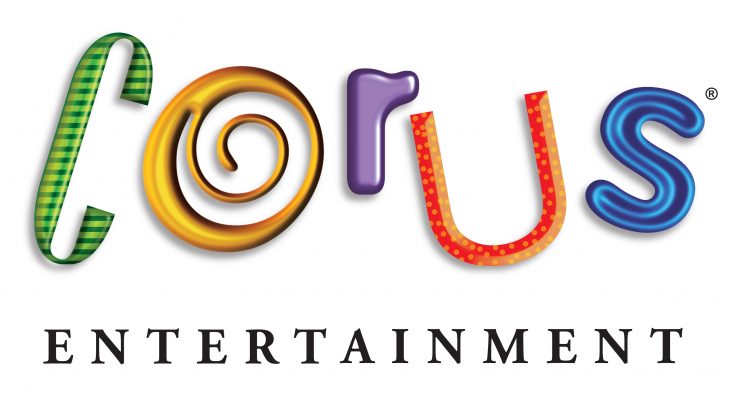
GATINEAU – Many of the 40 companies and individuals who filed interventions in response to the CRTC’s call for comments on the proposed $2.65 billion purchase of Shaw Media Inc. by Corus Entertainment say at the very least the CRTC should hold a public hearing on it – while some said that the sheer size of the deal and the increased concentration of media under one roof means the Commission must apply its tangible benefits policy, too.
The Commission’s tangible benefits policy usually calls for 10% of the value of any TV broadcasting transaction where control changes hands to be set aside for new Canadian TV production and other funds. If applied to this deal, that would of course mean a cash injection of $265 million to the industry.
The Writers Guild of Canada opposes the deal outright in its submission saying the proposed deal (which is reportedly facing some opposition on the shareholder front, too) “cannot represent anything but a major shift in how the Canadian broadcasting system is operated.”
Having 35 specialty channels all now under one roof (even though the Shaw family owns both Corus and Shaw Media) shows that while the owner will remain the same, “effective control” of Shaw Media will shift, if approved, says the Canadian Media Producers Association. That means the transaction should trigger the CRTC’s tangible benefits policy, as well as an examination of the deal under the Regulator’s Diversity of Voices policy, too.
“Given the Commission’s mandate to ensure that all significant transactions are in the public interest, the obligation of broadcasting companies effecting massive consolidation to give back to the broadcasting system should be tied to the practical impact such consolidation will have on the system, and not to the sole question of who may, in narrow legal terms, end up exercising control of the consolidated entity after the transaction is completed,” reads the CMPA submission.
The CMPA has also used this transaction to ask the CRTC to reconsider its decision on terms of trade (even though federal cabinet has already made a decision on that). “Last year, in a Let’s Talk TV decision, the Commission decided to relieve the broadcasters of their obligation to adhere to a terms of trade agreement by condition of licence because ‘broadcasters and producers now have the clarity and experience they need to negotiate any future agreement among themselves’,” reads the CMPA decision. “It is clear, however, that Corus has no intention of negotiating a renewed terms of trade agreement or an equivalent set of competitive safeguards with the CMPA unless it is compelled to do so by the Commission.
This application “must be reviewed in the context of how a merged Corus-SMI would exercise its dominant market position in its dealings with independent producers and other key stakeholders in the system. It is the conclusions drawn from this analysis that will enable the Commission to determine whether or not the transaction is in the public interest.”
“Corus already dominates the English-language children’s programming genre. With the purchase of the SMI stable of specialty services, Corus would also dominate English-language women’s and lifestyle programming.” – CMPA
PIAC (the Public Interest Advocacy Centre) said in its submission that allowing a merged Corus-SMI will concentrate too many channels (35 specialties) under one power structure and that the Commission must call a public hearing to examine this aspect of the proposal. “SCI (Shaw Communications Inc.) argues that the Commission’s Diversity of Voices Policy only triggered by a ‘change in effective control’ and therefore does not apply to the current transaction,” reads the PIAC submission.
“Corus already dominates the English-language children’s programming genre. With the purchase of the SMI stable of specialty services, Corus would also dominate English-language women’s and lifestyle programming,” adds the CMPA intervention.
“As a result of this transaction, Canadian writers, producers, and other audiovisual creators would likely have fewer opportunities and ‘doors to knock on’ within the licensed Canadian broadcasting sector, which would negatively affect the diversity of programming broadcast and its ability to reflect different Canadian communities,” PIAC said.
“In PIAC’s view, this would not be in the public interest of viewers nor contribute to strengthening the Canadian broadcasting system.”
This isn’t to say every intervenor was against the transaction. Studio Entertainment One (The F Word, The Divergent Series,Rookie Blue, Haven, Call Me Fitz, Chopped Canada, Border Security, Yukon Gold Undercover Boss Canada, etc.) noted its full support in a letter to the Commission. “Our industry requires that a handful of strong Canadian media companies with scale and capital are positioned to take creative and financial risks alongside strong Canadian-based domestic and global players,” wrote Darren Throop, president and CEO “This symbiotic relationship among Canadian companies will ensure world class creative execution and worldwide exploitation, where the financial rewards remain in the hands of all Canadians who participate throughout the value chain.
“In stating our support, we expect that this transaction, and the combined enterprise, will bring meaningful opportunities and sustained investment to Canadian talent, independent producers and distributors to continue to deliver original programming for audiences both at home and around the world.”
There were no interventions filed by other broadcasters or carriers and it’s not known at this time whether or not the Commission will call a public hearing.




